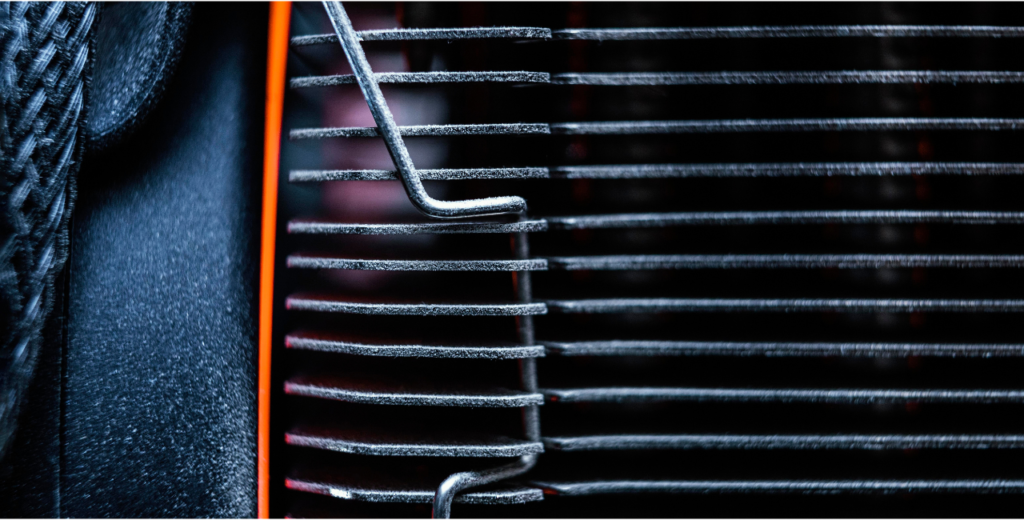A radiator fluid leak in a car is a frequent problem that can result in significant engine damage if not fixed quickly. Coolant plays a crucial role in regulating engine temperature, and any leakage can lead to overheating. If your car is leaking coolant, it can result in engine damage, poor fuel efficiency, and even a breakdown on the road. Many drivers turn to an auto repair Houston for professional diagnosis and repair, ensuring the issue is fixed correctly. Understanding the causes and solutions for a radiator fluid leak is crucial for every car owner to prevent costly repairs and extend their vehicle’s lifespan.
If you’re searching for ‘auto repair near me,’ we’re here to help — book your service today.
Common Causes of a Radiator Coolant Leak
A radiator fluid leak can compromise your vehicle’s cooling system, leading to overheating and potential engine failure. As part of car cooling system repair services, identifying and addressing leaks early can prevent costly repairs. Here are some common causes:
1. Cracked or Damaged Radiator
Over time, radiators can develop cracks due to extreme heat, constant pressure fluctuations, and corrosion. A leaking radiator often results from rust buildup or debris damage. If the radiator is not properly maintained, coolant can seep through these cracks, leading to overheating and potential engine failure.
2. Worn-Out Radiator Hoses
Rubber hoses connecting the radiator to the engine can wear out due to heat exposure and pressure changes. These hoses can develop cracks or become loose over time, leading to coolant leaks. If you notice a car dripping coolant, inspect the hoses for any signs of damage or weakness. Replacing old, brittle hoses is essential to maintaining an efficient cooling system and preventing engine overheating.
3. Leaky Radiator Cap
A faulty or loose cap can cause a radiator coolant leak, allowing coolant to escape as steam or liquid. If your vehicle is overheating or you notice coolant loss without an apparent source, check the radiator cap for wear and tear. Replacing a worn-out cap is a simple yet effective radiator leak fix that can prevent serious engine issues.
4. Failed Water Pump
The water pump circulates coolant throughout the engine and radiator. If it develops leaks or fails due to age or contamination, it can cause a coolant fluid leak near the front of the engine. Signs of a failing water pump include a whining noise, engine overheating, and coolant pooling under the vehicle. It’s crucial to replace a faulty water pump promptly to prevent engine damage.
5. Damaged Head Gasket
A blown head gasket is one of the most severe reasons for coolant leaking from the bottom of the car. This issue allows coolant to mix with engine oil or burn off inside the engine, leading to white smoke from the exhaust and a milky appearance in the oil. If left unaddressed, a blown head gasket can result in total engine failure, making prompt repair crucial.
How to Fix a Coolant Leak from the Radiator
1. Identify the Leak Source
Before proceeding with a coolant leak repair, it’s crucial to determine where the leak is coming from. Check under the car for puddles of coolant, inspect the radiator, hoses, water pump, and radiator cap for visible signs of leakage. If the source is unclear, using a UV dye in the coolant can help pinpoint the exact location of the leak.
2. Tighten or Replace the Radiator Cap
If your car is leaking coolant, a loose or damaged radiator cap might be the culprit. A faulty cap can cause pressure loss and coolant overflow. Replacing it is a simple and cost-effective solution that helps prevent leaks and keeps the cooling system functioning properly.
3. Seal Small Leaks with a Radiator Stop-Leak Product
For minor leaks, a radiator leak fix can be as simple as adding a stop-leak product to the cooling system. These sealants can temporarily fix small cracks in the radiator and hoses. However, this is not a permanent solution, and you should still seek professional inspection to ensure there are no underlying issues.
4. Replace Worn-Out Hoses
If you spot leaking coolant from cracked hoses, replacing them is the best solution. Always ensure proper tightening of hose clamps and choose high-quality replacement hoses that can withstand high temperatures and pressure. Regular maintenance can prevent hose-related leaks from occurring.
5. Repair or Replace the Radiator
If the radiator fluid leak is due to severe damage, consider replacing the radiator to prevent future issues. A new radiator may be required if there are large cracks, excessive corrosion, or multiple leaks. While repairs may be possible for small damages, a replacement is often the safest long-term solution.
6. Fix a Blown Head Gasket
A leaking antifreeze fix due to a blown head gasket requires professional repair. This is a complex and costly repair that should not be delayed, as ignoring a head gasket issue can result in irreversible engine damage. If you notice signs of a blown head gasket, like overheating, white exhaust smoke, or contaminated engine oil, seek professional assistance right away.
How to Perform a Coolant Pressure Test
If you’re losing coolant but can’t find a visible leak, a coolant pressure test may be necessary. This handheld tool measures the pressure within your cooling system. If the pressure is low, there’s likely a leak somewhere.
- Start with a Cool Engine: To prevent burns, ensure the engine is completely cool before working on the radiator and coolant system.
- Remove the Radiator Cap: Remove the radiator cap slowly to safely release any built-up pressure.
- Attach the Pressure Attach: Attach the pressure tester securely to the radiator neck or reservoir, ensuring a tight seal.
- Pressurize the System: Pump the tester to the pressure specified by your vehicle’s manufacturer, usually between 15 and 20 psi.
- Check for Leaks: Watch the gauge for any pressure drop, as this signals a leak. Inspect hoses, radiator, and engine components for visible leaks or drips.
- Release the Pressure: Once finished, carefully release the pressure from the system before disconnecting the tester.If you find any leaks, address them immediately to prevent overheating and engine damage.
Preventing Future Coolant Leaks
- Regularly Check Coolant Levels: Ensure that your coolant levels are sufficient and top up when necessary.
- Inspect Radiator Hoses and Cap: Check for signs of wear and replace damaged components before they cause leaks.
- Flush the Cooling System: Perform routine coolant flushes as recommended by your vehicle manufacturer to remove debris and contaminants.
- Schedule Routine Maintenance: Have a professional mechanic inspect your cooling system during regular servicing to catch potential coolant leaks early and prevent costly repairs.
Get Expert Coolant Leak Repair at Eric’s Car Care
If you’re dealing with a leaking antifreeze issue and need a coolant leak fix, visit Eric’s Car Care for professional and reliable service. Our experienced mechanics can quickly diagnose and fix your radiator coolant leak, ensuring your car runs smoothly and efficiently. Don’t wait until a minor coolant leak turns into a costly repair—stop by Eric’s Car Care today or book an appointment by calling 713-667-9293 and let our experts keep your car in top condition!

